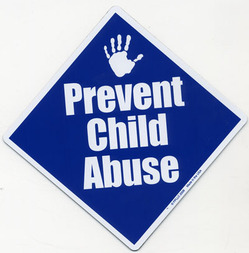
Child Abuse Prevention
In 1983, April was designated by Presidential Proclamation as National Child Abuse Prevention Month.
Child abuse is everyone's problem. Annually, billions of dollars are spent across the nation in dealing with the aftermath of child abuse. At the Kane County State's Attorney's Office, approximately 10 percent of our lawyers deal almost exclusively with cases of child abuse and neglect. We estimate that at least 40 percent of the cases we charge involve a defendant who learned abusive behavior as a child or who was abused and neglected as a child. Many instances of child abuse are preventable. Here's what you should know and how you can help.
Child Abuse Facts
What is child abuse and neglect?
- Physical abuse - an injury to a child that is not an accident, may include: hitting, punching, beating, burning, biting, kicking, cutting, shaking, or any action that physically harms a child.
- Sexual abuse - any sexual activity with a child, including exhibitionism, photographs or films, pornography, prostitution, rape, or fondling.
- Who abuses children?
- Most often the abuser is someone the child knows - a parent, relative, neighbor or family friend.
- Where does child abuse happen?
- Wherever children are, where they live, sleep, learn or play.
Source:
www.preventchildabuseillinois.org
What you can do to help
Seven steps to protecting our children from child sexual abuse
- Learn the facts, understand the risks. Realities - not trusts - should influence your decisions regarding children.
- Minimize opportunity. If you eliminate or reduce one-adult/one-child situations, you'll dramatically lower the risk of sexual abuse for children.
- Talk about it. Children often keep abuse secret, but barriers can be broken by talking openly about it.
- Stay alert. Don't expect obvious signs when a child is being sexually abused.
- Make a plan. Learn where to go, whom to call and how to react.
- Act on suspicions. The future well-being of a child is at stake.
- Get involved. Volunteer and financially support organizations that fight child sexual abuse.
Source: www.darkness2light.org
Help reduce stresses that contribute to abuse
- Reach out to children and parents. Support children and parents. Offer to baby-sit. Donate used children's clothing, furniture and toys. Be supportive of new parents.
- Facilitate friendships and support. Offer opportunities for parents to get acquainted and develop support systems. Strategies may include sports teams, potlucks, classes and advisory groups.
- Strengthen parenting. Develop ways for parents to get support on parenting issues, such as classes, support groups, home visits and resource libraries.
- Respond to family crises. Offer extra support to families when they need it, as in times of illness, job loss, housing problems and other stressors.
- Link families to services and opportunities. Make sure families know where to go for job training, education, health care, mental health and other essential services.
- Recommend voluntary home visitation. New parents or parents who feel overwhelmed should consider voluntary home visits. These programs have been effective in reducing stressors that lead to child abuse. To sign up, call (847) 888-6457
Warning signs and how to respond
Recognizing child abuse and neglect
www.childwelfare.gov/pubs/factsheets/signs.cfm
www.helpguide.org
Additional resources
Child Welfare Information Gateway
American Association of Pediatrics
Studies on the effectiveness of home visitation
Elgin Child Abuse and Neglect Prevention Report
How to help locally
Kane County Child Advocacy Center
Friends of Child Advocacy fundraiser